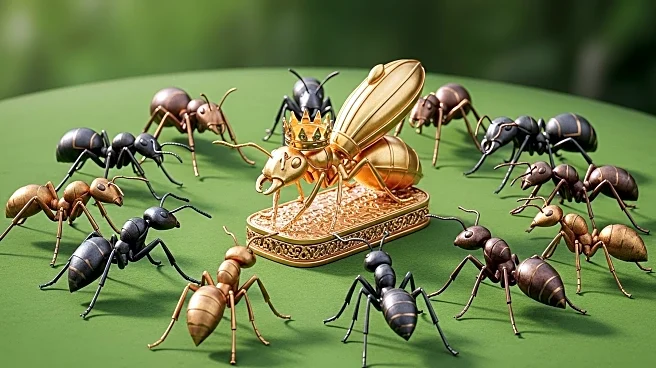What's Happening?
Researchers have discovered a remarkable biological phenomenon involving the ant species Messor ibericus. The queens of this species are capable of producing male offspring that belong to a different species, Messor structor. This process, termed xenoparity, challenges traditional biological assumptions about species reproduction. The queens utilize a genetic mechanism called androgenesis, allowing them to clone males from another species. This discovery was made during genetic surveys conducted by Jonathan Romiguier and colleagues at the University of Montpellier, who observed hybrid worker ants across southern Europe.
Why It's Important?
This discovery has significant implications for our understanding of species and reproduction. It challenges the conventional definition of species, suggesting that some organisms may function as multi-species entities. The ability of Messor ibericus queens to produce offspring of another species could lead to new insights into genetic manipulation and evolutionary biology. This phenomenon also raises questions about the adaptability and survival strategies of ants, potentially influencing future research in entomology and genetics.
Beyond the Headlines
The concept of xenoparity could redefine our understanding of species boundaries and genetic inheritance. It highlights the complexity of evolutionary processes and the potential for organisms to develop unique reproductive strategies. This discovery may prompt further investigation into similar phenomena in other species, expanding our knowledge of biodiversity and genetic interactions.









